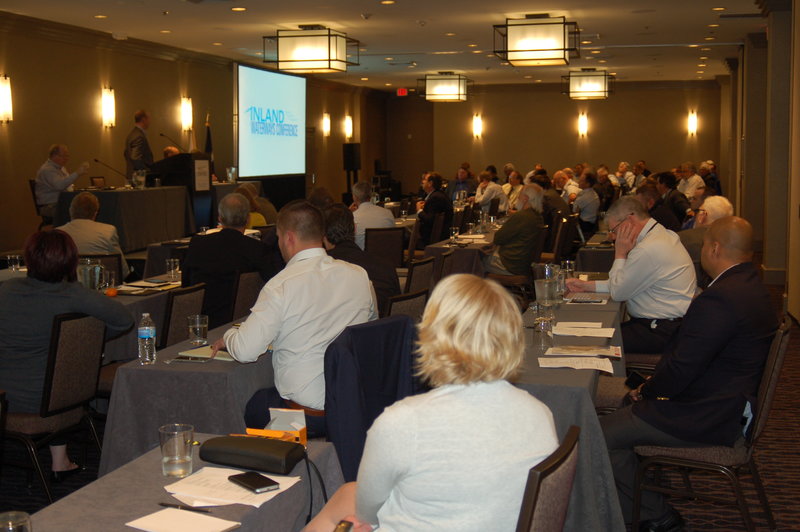President Trump’s proposed tariffs on steel and aluminum might slow down barge traffic on the inland waterways system, a Louisiana economist said this week
Stephen Barnes, director, economics and policy research group at Louisiana State University, told attendees at the Inland Waterways Conference in New Orleans on Tuesday that “tariffs are good news for steel and aluminum producers in the U.S. and bad news for everyone else. Consumers will face higher prices and fewer things will be consumed.”
Therefore, fewer raw materials will be needed for products that consumers use now, especially luxury items. “Connection to the global economy is good for the inland waterways,” Barnes said. “It remains to be seen how seriously [the tariffs] are implemented.”
The economist went on to say that the continued strengthening of the U.S. economy could tax the current labor force with unemployment rates at their lowest in years. “We’re beginning to see tightening of labor markets, and some of these markets will begin drawing workers from other industries,” Barnes said.
On a positive note, he said if the price of oil remains in the high-$50 bbl. to low-$60 bbl. range, more oil would move onto the inland waterway system and maybe even jumpstart some activity in the Gulf of Mexico.

LSU economist Stephen Barnes. Ken Hocke photo
The problem of recreational activity on the inland waterway system was discussed several times throughout the day. Gus Gaspardo, Passenger Vessel Association (PVA) president and owner of Padelford Packet Boat Co., described it as “the growing recreational presence.”
That growing presence has frustrated commercial boat captains throughout the U.S. Users of speed boats, jet skis, kayaks and other floating recreational craft have no qualms about running in front of commercial vessels that don't have the ability to stop quickly and can’t dodge these unlicensed operators.
Major Gen. Richard Kaiser, commander, Corps of Engineers, Mississippi Valley Division, said public service announcements have been in use and have had some affect. “PSAs to highlight the dangers to recreational users has worked,” he said.
When an audience member called for federal regulation to stop the unsafe practice, Rear Adm. Paul Thomas, commander, U.S. Coast Guard, Eighth District, said, “This is primarily a state and local issue. If you think another federal regulation is the answer, it’s not.”
To add fuel to the fire, “21 percent of lockages come from recreational boaters, and they do not pay into the [Inland Waterways Trust] fund,” said Tracy Zea, director, government relations, Waterways Council. The barge industry pays 29 cents per gallon of fuel, and that money goes into the Inland Waterways Trust Fund to help with waterways infrastructure maintenance.




